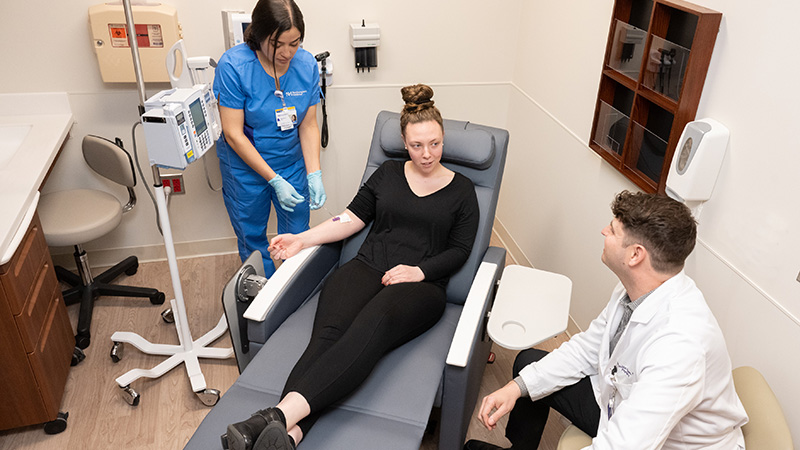How to Cope After Miscarriage
Rule No. 1: Don’t Blame Yourself
Updated April 2024
Miscarriage — the unexpected loss of a pregnancy before the 20th week of a pregnancy — is a common experience. Up to 1 in 5 clinically recognized pregnancies end in miscarriage. Even though it is common, it is deeply personal and often emotionally difficult.
People who experience miscarriage frequently report a sense of suffering in silence. This is because those who experience it may be afraid to share the news of the loss with their loved ones. They may worry that others will ask them what they did wrong: "Were you too stressed? Did you do too much?" Although these questions may be well-intentioned as others try to find an explanation for the loss, the comments suggest the miscarriage is the person's or couple's fault. They also come at a time when the person or couple may already be blaming themselves.
Research does not show a relationship between stress and miscarriage. Most miscarriages are the result of chromosomal problems in the developing embryo or fetus. Although this fact can reduce feelings of guilt, it can increase anxiety around getting pregnant again.
Strategies That Can Help
Healthy coping strategies following miscarriage are important, says Susan C. Klock, PhD, a psychologist at Northwestern Medicine Fertility and Reproductive Medicine. She offers the following suggestions:
Allow yourself to grieve.
Throughout the grieving process, which is different for everyone, you might feel any of the following:
- Shock and confusion
- Numbness
- Sadness
- Anger
- Loneliness
- Guilt
"Sit through your feelings, letting them come and go," says Klock. "The grief following a miscarriage can last for several months or more, and often ebbs and flows."
Create a ritual to mark the pregnancy and its loss.
Society has rituals for people when someone they know dies. These rituals allow for acknowledgment, emotional processing and closure related to the loss. Unfortunately, no such ritual exists for the loss and grief following a miscarriage. It may help to set aside some time for you and your partner to reflect on the pregnancy, obtain something to commemorate the pregnancy (such as a figurine, a tree or shrub, a piece of jewelry) or attend a religious service. These actions can help with processing the grief and providing closure.
Be kind to yourself when you're grieving and ask for support.
Have your loved ones check on you, bring you food and sit with you in your grief, if that's what you want. Tell them specifically what you need. Although this may feel uncomfortable, many people don't know what to do or say to help someone grieving a miscarriage.
- Don't judge yourself. It is normal to grieve after miscarriage and to be anxious about a future pregnancy. There is no right or wrong way to grieve, and everyone takes different amounts of time to work through the pain and heartache of loss.
- Reach out to your partner. If you have a partner, let them know that they can share with you how they are feeling. Sometimes partners are afraid to share their feelings for fear they will make your grief or anxiety worse. However, a partner's silence may imply that they are unaffected by the miscarriage, and this too can be painful.
Seek professional help.
Make an appointment with a mental health professional to help you cope, especially if you are feeling anxious during a future pregnancy.






